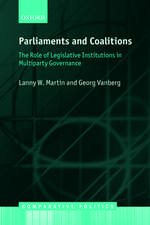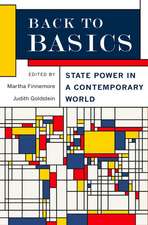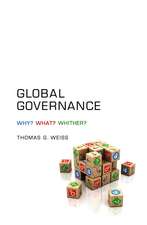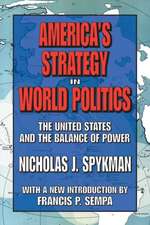British Labour Seeks a Foreign Policy, 1900-1940
Editat de Henry Winkleren Limba Engleză Hardback – 31 oct 2004
The Labour Party came into existence at the beginning of the twentieth century to deal with the domestic problems of the working class, and it showed relatively little interest in foreign policy issues. In the aftermath of World War I, however, small groups of moderates made the case against the bitter rejection of the Versailles Treaty by many in the Labour Party and the trade union movement. Most of these argued that the League of Nations could be used to remedy some of the deficiencies of the settlement and that such a League must have the sanction of force if it was to be effective.
During the 1930s, the failures of the League--in the Far East, Abyssinia, Spain, and Central Europe--compelled some of its advocates to conclude that, League or no League, the threat from Nazi Germany mandated support for a program of preparedness and rearmament even under the aegis of a hated National Government. The result, by 1937, was the final formal abandonment of many of the radical illusions of the twenties and thirties, as Labour reluctantly but formally assumed a posture that enabled it to share in the governance of wartime Britain and to take a key role in dealing with the international issues that emerged in the aftermath of the Second World War.
This volume contains valuable lessons on the responsibilities of political parties as well as the pros and cons of specific policies. It is essential reading for understanding Britain's later stands as its leaders tried to adjust to Britain's diminished power in the post-World War II world.
Preț: 763.78 lei
Preț vechi: 1027.17 lei
-26% Nou
Puncte Express: 1146
Preț estimativ în valută:
146.15€ • 152.59$ • 120.96£
146.15€ • 152.59$ • 120.96£
Carte tipărită la comandă
Livrare economică 04-18 aprilie
Preluare comenzi: 021 569.72.76
Specificații
ISBN-13: 9780765802644
ISBN-10: 0765802643
Pagini: 222
Dimensiuni: 152 x 229 x 22 mm
Greutate: 0.43 kg
Ediția:New.
Editura: Taylor & Francis
Colecția Routledge
Locul publicării:Oxford, United Kingdom
ISBN-10: 0765802643
Pagini: 222
Dimensiuni: 152 x 229 x 22 mm
Greutate: 0.43 kg
Ediția:New.
Editura: Taylor & Francis
Colecția Routledge
Locul publicării:Oxford, United Kingdom
Cuprins
Acknowledgements
Introduction
1. Background
2. The First World War
3. Labour and the Paris Settlement
4. The First Labour Government
5. The Locarno Era
6. The Second Labour Government
7. The Early 1930s
8. The Triple Crisis
9. The Chamberlain Factor
10. Prelude to War
Epilogue
Notes
Selected Bibliography
Index
Introduction
1. Background
2. The First World War
3. Labour and the Paris Settlement
4. The First Labour Government
5. The Locarno Era
6. The Second Labour Government
7. The Early 1930s
8. The Triple Crisis
9. The Chamberlain Factor
10. Prelude to War
Epilogue
Notes
Selected Bibliography
Index
Descriere
Since World War II, the British Labour Party has played a central role in dealing with complex international issues















